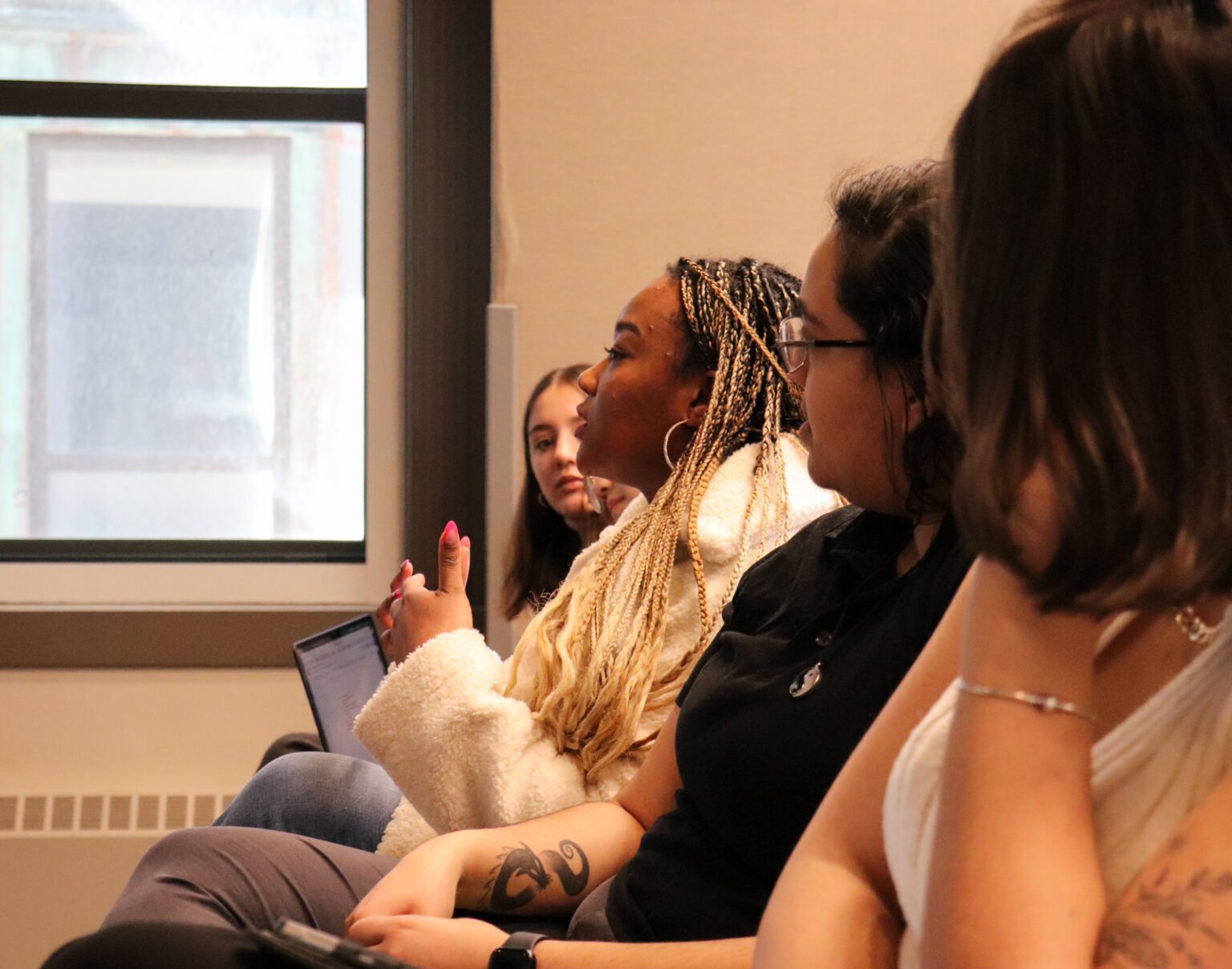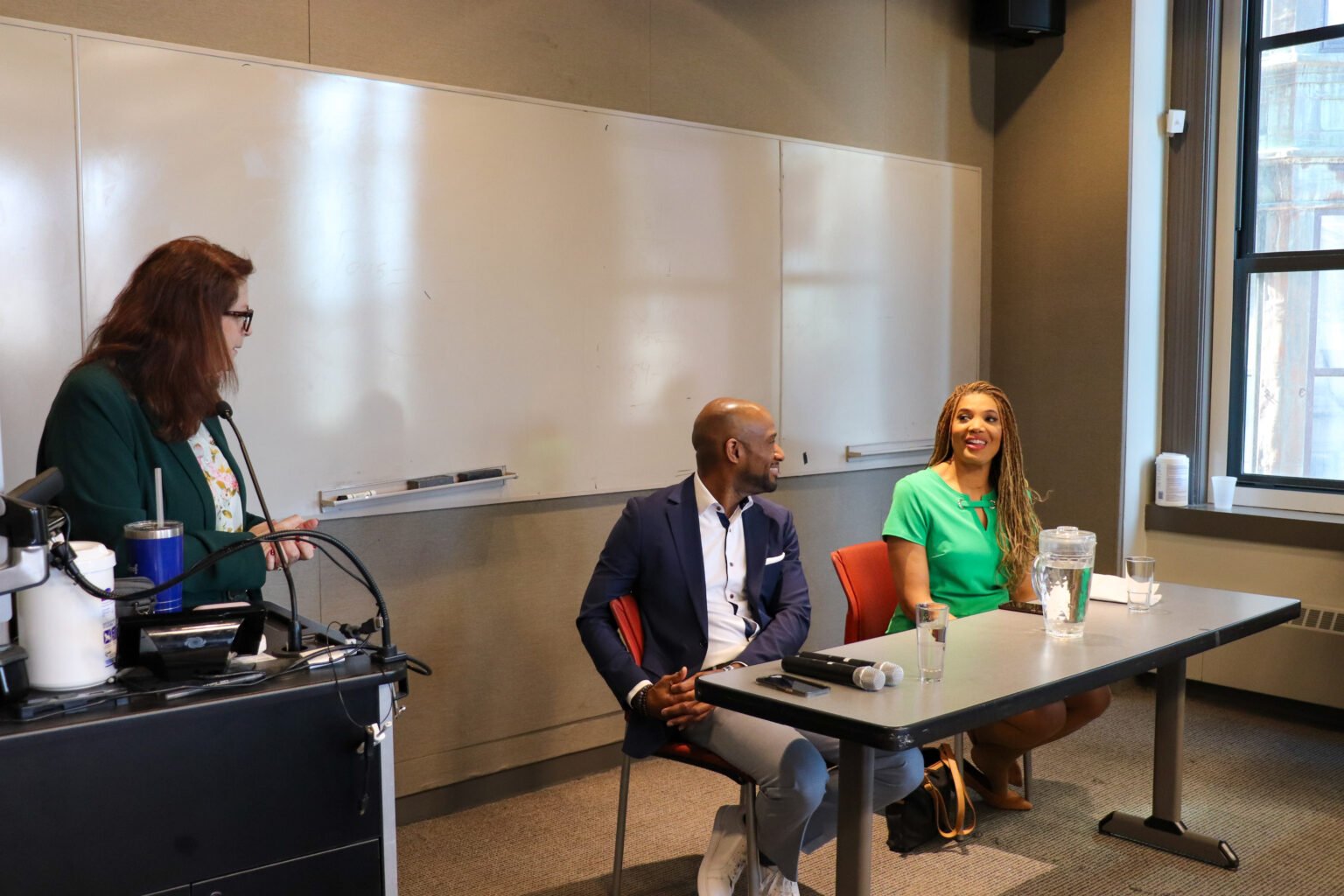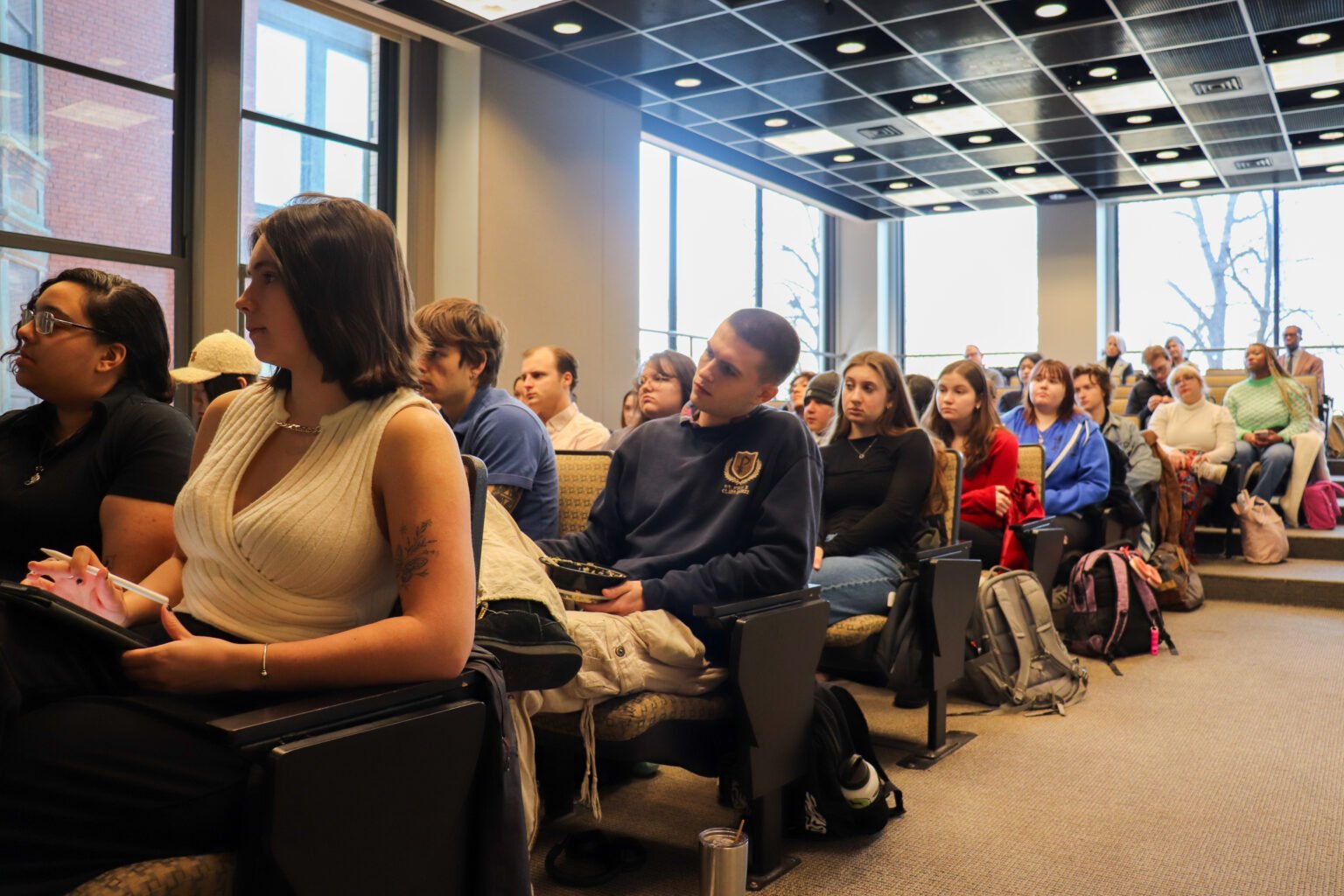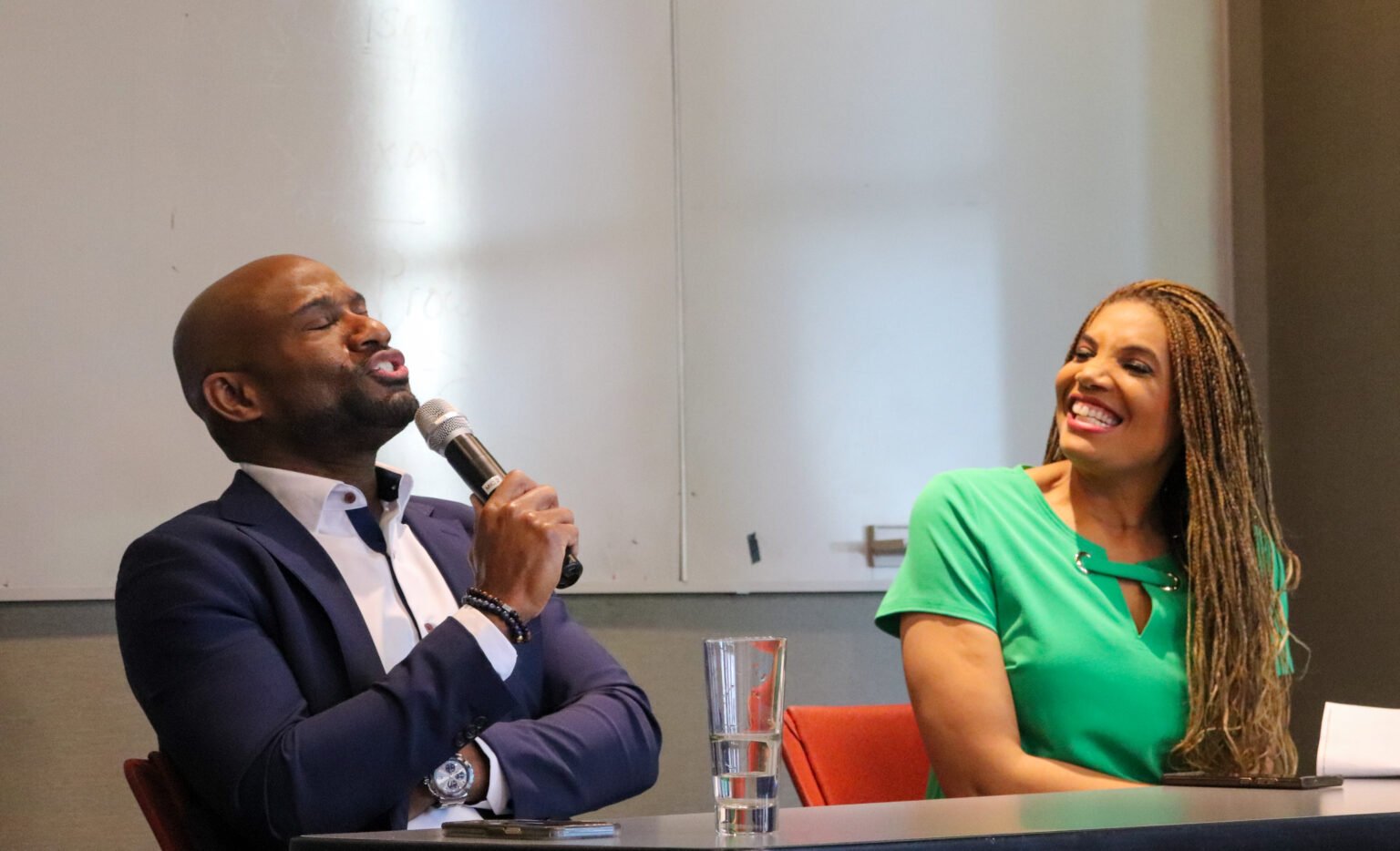Journalism Alumni on Earning Trust in Communities They Cover
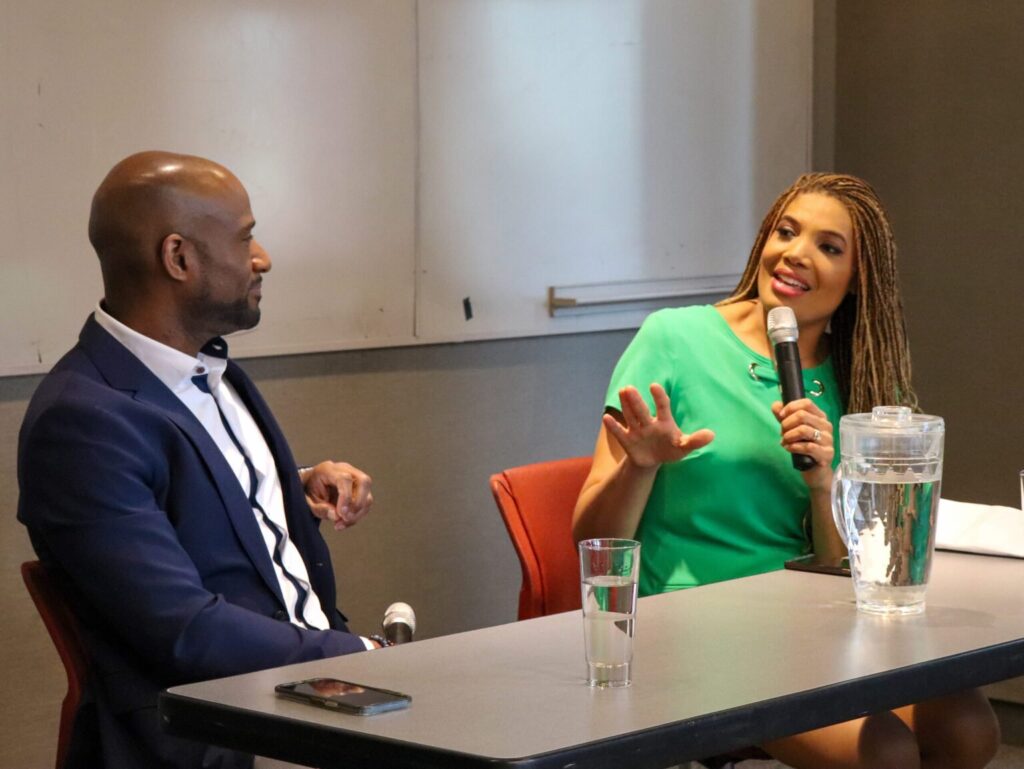
Photograph by Isa Luzarraga
Glenn Jones ‘99 had been out of the journalism business for over a decade. In 2006, Jones left his job as a reporter at a Fox Television affiliate, returning to his home in Bermuda to help out with an ailing family member.
Over the next 14 years, Jones would hold positions as the press secretary for the Bermudian government, and executive posts at the Bermuda Tourism Authority, but in 2020, everything changed.
Jones remembers watching broadcasters report on the murder of George Floyd, poring over every inch of coverage and witnessing how the world reacted. A year after Floyd’s murder, one of Jones’s colleagues reached out, asking if he wanted to get back into television.
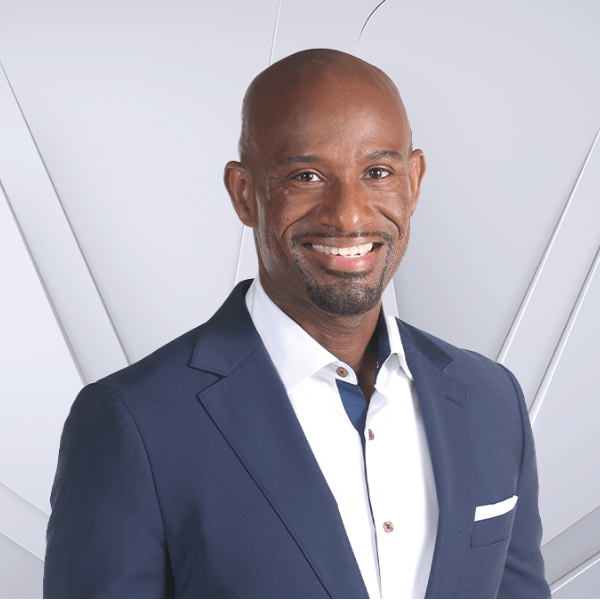
“At first I said, ‘That’s a horrible idea,’” Jones said. “But after I actually thought about it, I’m like, ‘I’ve been searching for this purpose, for this voice that I can add. Here’s my opportunity.’ What a hypocrite I’d be if I don’t take it.”
Last Thursday, Jones and fellow alum and Emmy winner, NBC10 anchor Latoyia Edwards ’98, returned to Emerson for a discussion with Journalism majors, moderated by Journalist-in-Residence Angela Anderson-Connolly ’90. As broadcast journalists of color, Jones and Edwards provided insight on handling traumatic situations, being empathetic when reporting, and remaining true to personal values.
Since his return to journalism and position as an anchor for NBC10 Boston, Jones has used his perspective and experiences to connect with the communities he covers.
“I do have a clearer North Star than I’ve ever had in my career,” said Jones, a New England Emmy Award winner. “I spend a lot of my time reporting… That’s my comfort. It gives me a real reason to go to work. It gives me a reason to support a cause. And it feels really good.”
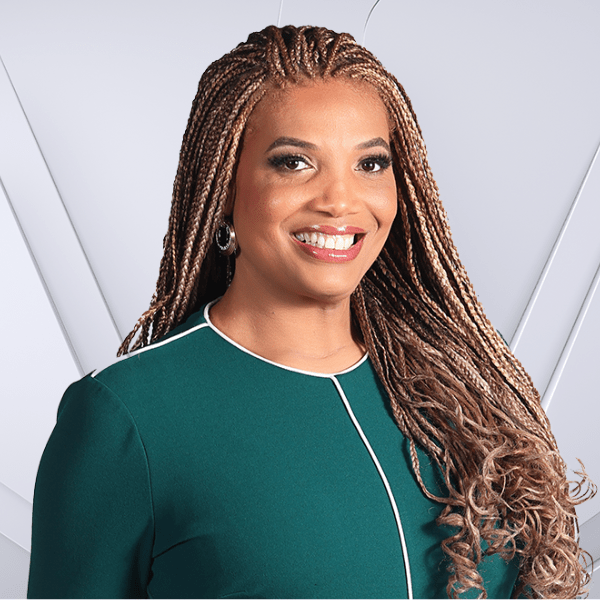
Edwards, a Dorchester native and one of Boston Magazine’s Most Influential Bostonians, defined community as “wherever you show up.” She said that connecting with community members is, for her, the only way to do journalism.
“Build trust, build connections, but it has to be pure,” Edwards said. “People can smell a fake and they can smell somebody who just wants to step on their necks to get ahead. So if that’s not your heart, don’t do it.”
Both of the speakers talked about how their race allows them to connect with certain communities while also creating space for other reporters of color within the industry.
“Every time we go out to work on a story, we’re actually entering someone’s community,” Jones said. “Sometimes you’re entering your own community. I’m a Black male, so sometimes when I go out to do stories about that community, I feel like I’m talking to my own.”
Edwards added that representation in the industry is fundamental to ensuring equitable, comprehensive coverage.
“For me, being a 6-foot-tall Black woman with braids in her hair, it is about representation,” Edwards said. “I like to make people who look like me feel comfortable. But I also like to be a presence so that if you don’t look like me, we talk, and then you feel comfortable.”
The student audience asked Jones and Edwards how they cover communities recovering from tragedy without exploiting them.
“You’re experiencing news sometimes as a viewer,” Edwards said. “So you have to be honest and say, ‘I just got here and there’s blood on the ground. There’s crime scene tape. Everybody’s stunned. They’re saying this is the worst thing that’s ever happened to the neighborhood.’ Take a deep breath. ‘OK, let me give you the facts right now.’”
Jones added that working as a general assignment reporter, as many journalists entering the job market do, is emotionally taxing. You’re often interviewing people on the worst day of their lives.
“Sometimes this work is gritty, and you go home and you feel slimy,” Jones said. “The community engagement actually helps rinse that off. It helps me to feel more grounded and more authentic.”
Anderson-Connolly introduced the merit of empathy versus sympathy to the conversation.
“It is not a requirement that every person be empathetic,” Jones said. “But, if you don’t have that emotion, you’ll never be a good reporter.”
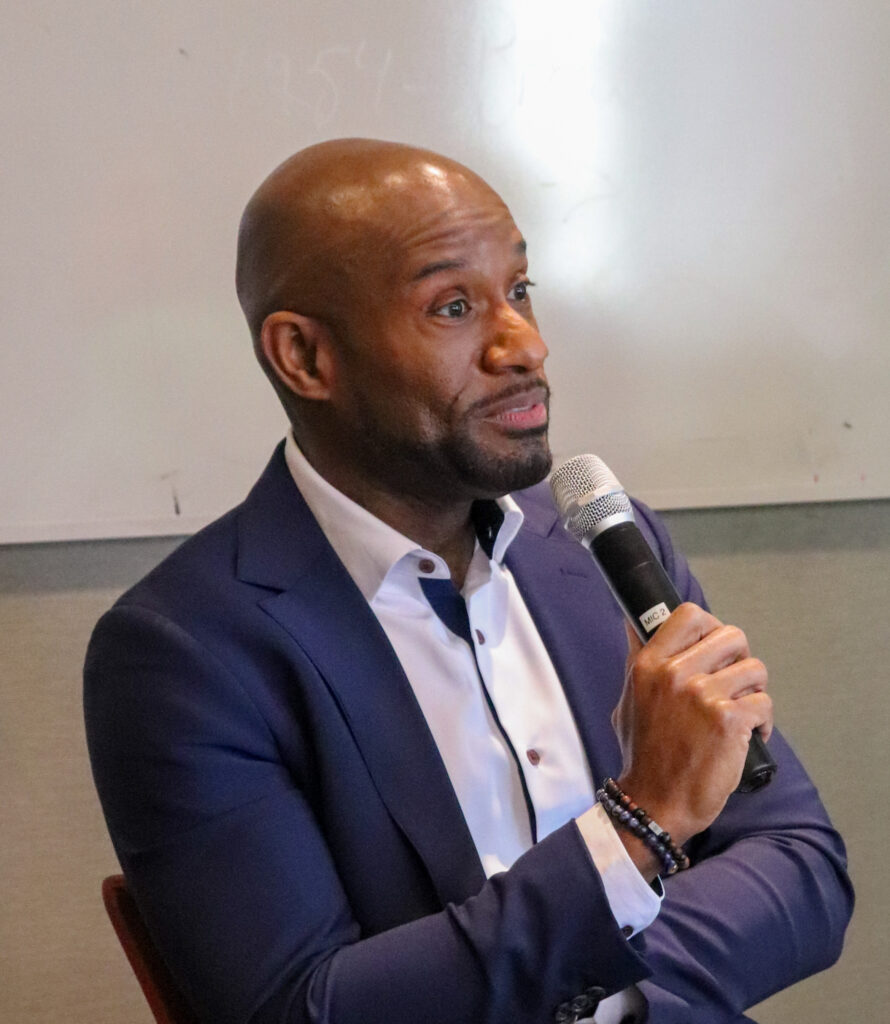
Edwards went on to talk about covering a child abuse case after her daughter was born. The parents of a 4-year-old child had purposefully drugged her close to death so they could receive psychiatric child support from the government.
“I went into the bathroom afterwards and I cried,” Edwards said, her voice cracking. “I remember coming back to the station and thinking to myself, ‘I cannot do this anymore.’”
Incidentally, her supervisor gave her the opportunity to switch beats.
“There’ll be times when you’re going to cover some really sick stuff,” Edwards said. “And it’s OK. I think in this day and age, people want to be authentic… I’m not afraid to cry because that’s just who I am.”
While many seniors expressed feelings of self-doubt as they enter the industry, the panelists assured them that there will always be a place for people that exude passion and excellence. Most importantly, Jones advised, remember why you chose journalism.
“As long as you keep that star in view, you’re going to end up in the right place.”
Categories
Isabella Luzarraga View All
Isa is a senior journalism major minoring in media studies. She is from Omaha, Nebraska but loves coming back to the city. Outside of coursework, Isa is the Managing Editor of Your Magazine, the secretary of Emerson's chapter of NAHJ and a freelance writer for publications nationwide. She loves reading in the Common, going for long runs and sipping iced coffee.
